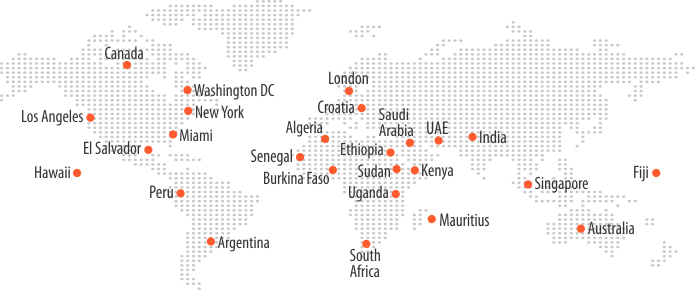Troubleshoot Your Fraud Management Solution to Battle 5G Fraud Concerns

As the world is moving towards a style of living that is hooked on the smartphones and internet, the reliance on telecommunication is only witnessing a sharp upward trajectory. The telecom industry has promptly responded to the increasing dependence on its services globally. With the increased scale of telecom services, the industry is also facing a higher number of frauds on a daily basis and is challenged by new types of fraud to combat. However, the industry is not new to scams.
Telecom fraud has been impacting individuals, businesses, organizations, governments, and society for decades. A research by Trend Micro Research and Europol’s European Cybercrime Centre on Cyber-Telecom Crime Report 2019 states that telecom fraud costs US$32.7 billion (€29 billion) annually to the world.
Don’t Miss
Watch Chanderhas Rana, Head – Business Development at Bankai Group discuss Global Telecom Frauds and Key Challenges at the Capacity Middle East 2021.
The COVID-19 Impact
Telecom services have never been as important as they are today. The only mode of communication to stay connected to families, conducting businesses, working remotely, has been through communication service providers in the past year. Also, the response of the industry in a time of urgency has been exceptional and of great value globally. As the world becomes increasingly reliant on telecom providers, and network security, major advancements in security practices are need of the hour.
During the imposed lockdowns, the frequencies of typical telecom frauds like Robocalls, Phishing, PBX fraud, and SMS scams increased significantly. Fraudsters essentially shifted their attention to COVID-themed attacks, says GSMA. Read more about the top frauds that have affected consumers and the telecom industry during COVID-19.
Top 4 Damaging Telecom Frauds
In current times, phone systems are frequently connected with corporate computer networks, other IoT devices, and sim cards, giving the hackers a chance to exploit phone systems in different ways. Listed are the most damaging telecom frauds that cost millions to telecom service providers.
International Revenue Sharing Fraud (IRSF)
IRSF is a very harmful scam for telecom companies. In this scam, various fraud partners with an International Premium Rate Number (IPRN) charge high rates for call termination and agree to share revenue for any traffic created by the fraudster.
IRSF includes
- Numerous international calls with long duration, to a single high-cost destination
- Certain calls are automatically generated by the criminals
- The fake calls would pass through 6 or 7 operators to reach their termination point.
- High revenue generated by fraudsters because of the trust between telecom operators.
- The loss is borne by the originating operator as there is no customer to bill.
One Ring Calls
In this type of scam, fraudsters trick the customers of a telecom operator into calling premium rate numbers. A scammer will set up a system to dial numerous random phone numbers and each call rings just once, thus, leaving a missed call on the recipients’ phone. Most users tend to call back believing it was a legitimate call and end up paying premium call rates.
By-pass Fraud
This type of identity fraud takes advantage of illegally obtained SIM cards to make long-distance calls that appear to the service provider as though they are making local calls. Operators still end up paying for the long-distance interconnection charges. By-pass fraud is rampant in countries where there is a significant difference in prices of retail calling, national calling and international calling.
Wholesale SIP Trunking Fraud
Wholesale trunking by fraudsters is growing in popularity as it can be very tough to detect. In this scam, the fraudster earns by selling wholesale trunking services via stolen credentials to terminate the calls. The destinations of calls in this scam are not particularly high cost, but neither too cheap. Countries like Vietnam, Laos and other middle-priced Asian countries are highly prone to this scam.
Employing Artificial Intelligence to battle Telecom Fraud in 5G Era
Fighting fraud has become a core priority for telecom operators and the battle has become significantly difficult with the arrival of 5G. While understanding the capabilities of 5G, the industry must keep in mind the increasing number of devices it will be supporting with the proliferation of IoT. In the meantime, the fraudsters continue to defraud the operators and customers exploit text messages, voice calling systems, and the IP exchange costing millions of dollars.
Bearing in mind the scale and speed of 5G, communication service providers cannot fight fraud with traditional fraud management systems. There is a dire need for Artificial Intelligence enabled fraud management solution that offers a data management platform to ingest data from multiple channels at near-zero latency and automatically apply thousands of machine-learned rules to avert fraud.
Panamax’s telecom Fraud Management Solution is developed by including advanced analytics. The solution employs both Artificial Intelligence and Business Intelligence to safeguard the networks. The Fraud Management Solution helps Operators, Carriers, and Regulators across the globe, in protecting their revenues and ensuring a premium customer experience.
Related Posts
Combating Telecom Fraud With Artificial Intelligence
Telco Fraud Prevention Strategies And Revenue Assurance In The 5G Era






